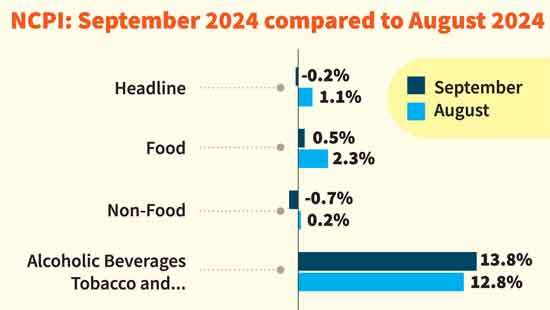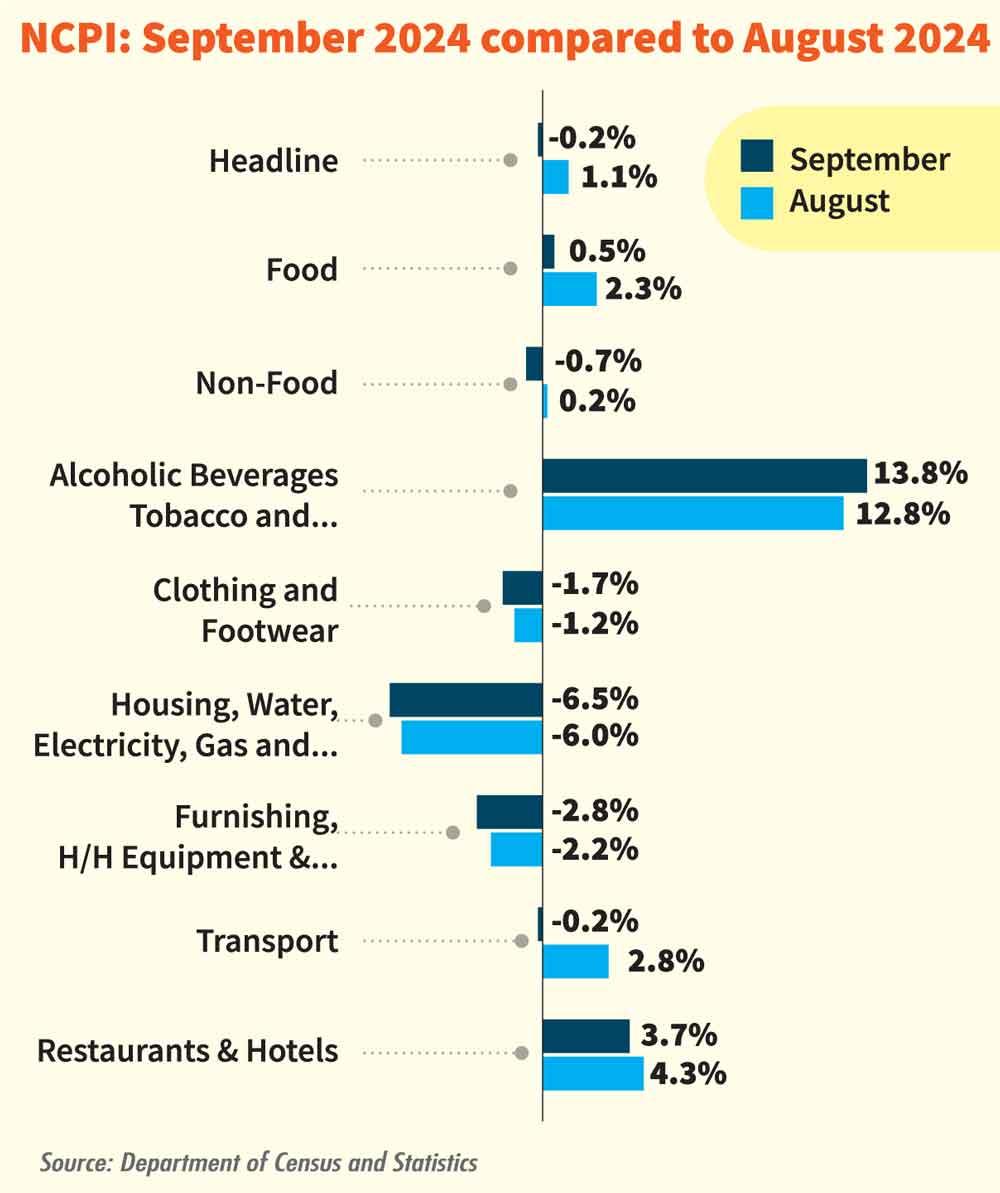Reply To:
Name - Reply Comment


The national consumer prices fell into deflation in September, after the food prices cooled, while the fuel prices took away much of the heat on the non-food price inflation during the last few months. This is due to the repeated cuts to the fuel prices, based on the easing global energy prices and rupee strength.
The consumer prices, measured by the National Consumer Price Index, came in at a negative 0.2 percent in the year through September 2024, flipping from an increase of 1.1 percent through August 2024.
The monthly prices fell 0.5 percent, extending the months-long decline in the index, as both the food prices and non-food prices fell.
The prices of many food items declined at national level, offsetting the price increases in only a few items during September, which helped slightly ease the hardships facing people, after going through the years-long runaway inflation, which turned their lifestyles upside down.
The monthly prices declined 0.8 percent while the prices measured annually cooled to 0.5 percent, from a 2.3 percent increase seen through August 2024.
The improvement in the supply conditions, downward revisions to fuel and electricity prices and over 10 percent appreciation in the rupee helped the prices of everything from the basics to discretionary to durables to come down in prices as of late.
The Central Bank too expects the current deflationary impulses to persist for a couple of more months before converging towards its 5 percent medium-term inflation target by the first half next year.
Unlike in other cases of deflation, the Central Bank is unasing power the people lost in the last couple of years.
The non-food inflation fell by 0.3 percent in September from a month ago while the prices declined by 0.7 percent from a year ago levels, predominantly due to the cuts to the fuel prices.
Transport consumes a significant share of people’s incomes and hence, the part reversal in energy prices will leave more money in people’s pocket books to spend elsewhere, specially on the essentials and discretionary, which the households had to do away with for more than two years.
Meanwhile, the so-called core prices, which strip out the often-volatile food, energy and transport prices, fell slightly to 2.7 percent in the year through September 2024, from 2.8 percent through August.